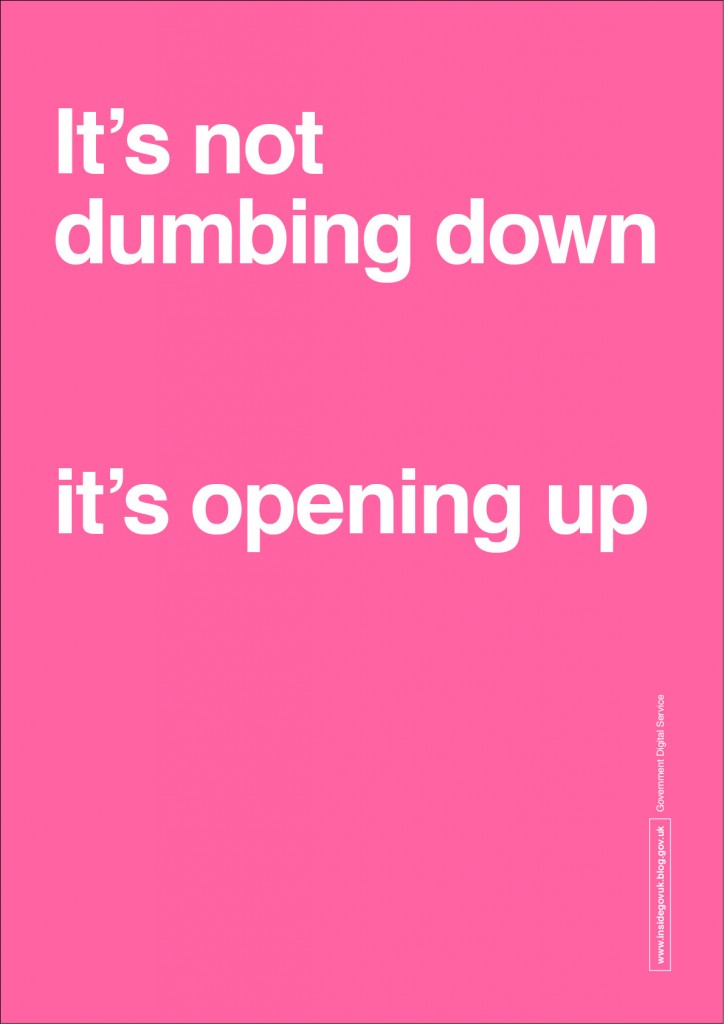Plain English does not mean “dumbing down”
There seems to be some confusion over this point, so let me be clear – writing in plain English does not equate to “dumbing down” content.
In the words of Lorena Sutherland, content lead for Office of the Public Guardian on GOV.UK: “It’s not dumbing down, it’s opening up”.
What is plain English?
Writing in plain English means being as clear, concise and direct as possible. Jargon should be avoided if at all possible, and if not, then it should be properly explained.
Sentences should be kept short, and simple words should be used. For example, “use” in place of “utilise”; “variety” over “plethora”; and “contrast” instead of “dichotomy”.
Isn’t it patronising?
No.
Some sectors – academia being one – suffer from overuse of jargon. However, research has shown that even the most educated people appreciate content written in plain English:
“… the more educated the person, the more specialist their knowledge, the greater their preference for plain English. The old argument… that ‘these readers will understand this language’ may be true, but it doesn’t mean they want to read it.” – Mark Morris, Head of Clear English at the Department of Health
In her 13 writing rules Ann Handley, Chief Content Officer at Marketing Profs, reminds us: “No one will ever complain that you’ve made things too simple to understand.”
For tips on making your writing easy to understand, please see our five tips for writing concisely.
Still not sold? The Plain English Campaign’s Golden Bull awards may convince you otherwise. Here’s their 2015 compilation of the worst of the year’s written communication.
